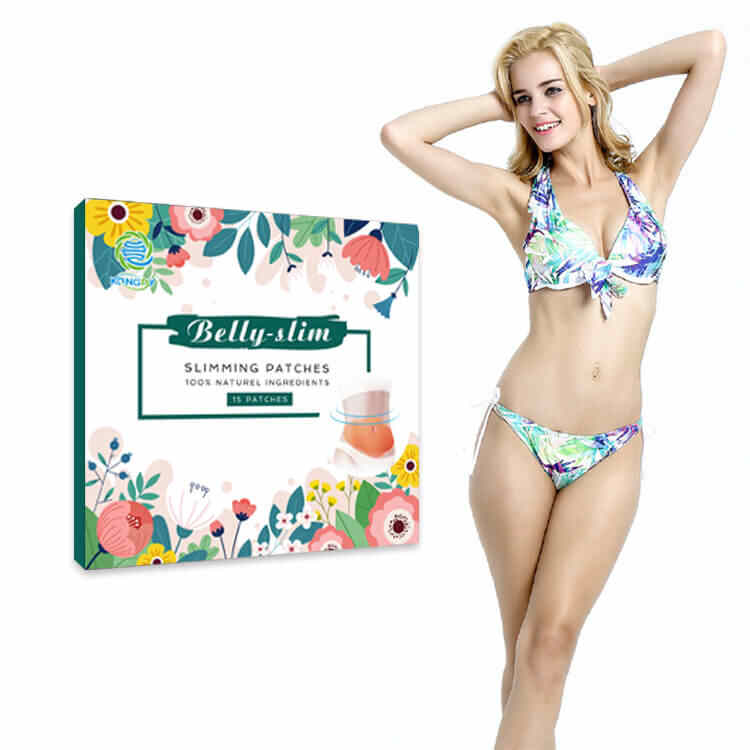Regulatory Compliance in Herbal Slimming Patches OEM: What Every Brand Owner Must Know
The global health and wellness industry is booming, with herbal slimming patches emerging as one of the fastest-growing product categories. As consumers demand natural, safe, and effective weight management solutions, the responsibility for regulatory compliance becomes even more critical. For any business working with a herbal slimming patches Manufacturer or herbal slimming patches Supplier, understanding compliance requirements is not just a formality—it is a necessity to build trust, avoid legal risks, and ensure long-term market success.
Whether launching Custom herbal slimming patches or entering the market with Private Label herbal slimming patches, brand owners must understand how compliance shapes product formulation, labeling, safety testing, and international distribution. This article explores the key aspects of herbal slimming patches OEM compliance and explains what every brand owner should know to succeed in this competitive industry.

1. Why Regulatory Compliance Matters in Herbal Slimming Patches OEM
Compliance ensures that herbal slimming patches are safe, effective, and legally marketable. Regulatory authorities worldwide, such as the FDA (United States), EMA (Europe), CFDA (China), and other regional health agencies, enforce strict standards to protect consumers.
Failing to comply with these standards can result in:
Product recalls and bans
Legal penalties and fines
Reputational damage
Loss of consumer trust
For brand owners working with a herbal slimming patches OEM partner, compliance provides assurance that products meet local and international requirements, paving the way for smooth market entry and long-term brand credibility.
2. The Role of Herbal Slimming Patches Manufacturers in Compliance
A trustworthy herbal slimming patches Manufacturer plays a critical role in ensuring regulatory alignment. The right manufacturer integrates compliance at every stage, from sourcing herbal ingredients to packaging the final product.
Key Responsibilities of Manufacturers:
Ingredient verification: Ensuring all herbs used are safe, approved, and meet local standards.
Good Manufacturing Practices (GMP): Operating under GMP ensures quality, hygiene, and consistency.
Third-party testing: Regular laboratory testing confirms safety, efficacy, and compliance.
Traceability systems: Tracking ingredients from raw material to finished product for transparency.
When selecting a herbal slimming patches Supplier, brand owners should confirm that these compliance systems are in place and properly documented.
3. Herbal Slimming Patches OEM and International Regulatory Standards
One of the greatest advantages of working with herbal slimming patches OEM services is that they help businesses navigate the complex landscape of international compliance.
Key Global Standards to Consider:
United States (FDA): Dietary supplements must comply with labeling rules, GMP, and ingredient safety standards.
European Union (EMA/EFSA): Requires safety dossiers, approved claims, and standardized labeling.
China (CFDA): Enforces strict product registration and requires evidence of safety and efficacy.
Middle East & Africa: Countries often require Halal certification and proof of safe herbal sourcing.
By aligning with an experienced OEM partner, businesses can adapt their Custom herbal slimming patches or Private Label herbal slimming patches to meet local legal frameworks before entering new markets.
4. Labeling and Packaging Requirements
One of the most scrutinized aspects of compliance is labeling. Misleading or incomplete labeling can result in heavy penalties or product bans.
Essential Labeling Elements:
Ingredient list: Every herb, adhesive, or excipient must be listed.
Dosage instructions: Clear directions for safe use.
Warnings and contraindications: Essential for consumer safety.
Allergen information: Required in many markets.
Certifications: Eco-labels, organic certifications, and GMP seals add credibility.
A herbal slimming patches Manufacturer with OEM experience will ensure labels are compliant with each target market. For example, a product marketed in the EU may need different labeling than one in the U.S.
5. Product Testing and Quality Assurance
Testing is at the core of regulatory compliance. A reputable herbal slimming patches Supplier will integrate quality assurance protocols to guarantee consumer safety.
Common Testing Protocols:
Microbiological testing: Ensures no harmful bacteria or fungi.
Heavy metal testing: Herbal products must be free from lead, mercury, and arsenic.
Toxicology reports: Verifies that ingredients are safe for human use.
Stability testing: Confirms product effectiveness over shelf life.
These tests not only satisfy regulators but also reassure consumers that Custom herbal slimming patches or Private Label herbal slimming patches are safe and reliable.
6. Private Label Herbal Slimming Patches: Compliance Made Simple
For entrepreneurs and businesses seeking rapid entry into the market, Private Label herbal slimming patches are an attractive option. Private label solutions allow companies to sell under their own brand without handling complex R&D or compliance issues directly.
OEM partners streamline compliance by:
Providing pre-approved formulations that already meet legal standards.
Offering compliant packaging and labeling templates.
Managing documentation for product registration in target markets.
This makes Private Label herbal slimming patches especially beneficial for small businesses or new entrants who want regulatory assurance with minimal investment.
7. Custom Herbal Slimming Patches: Balancing Innovation with Compliance
While customization allows brands to differentiate themselves, Custom herbal slimming patches require extra compliance effort. New herbal combinations or innovative delivery technologies may trigger stricter regulatory review.
Compliance Challenges in Customization:
Novel herbal ingredients may require additional safety dossiers.
Claims made on custom formulations must be supported by clinical evidence.
Regulatory authorities may require product-specific registrations.
Therefore, working with an experienced herbal slimming patches Manufacturer is crucial to balance creativity with compliance. OEM partners can help validate custom formulations through rigorous testing and documentation.
8. How to Choose the Right Herbal Slimming Patches Supplier for Compliance
Selecting a compliant herbal slimming patches Supplier is one of the most critical business decisions brand owners can make.
Key Factors to Evaluate:
Certifications: Does the supplier hold GMP, ISO, or organic certifications?
Regulatory experience: Do they have a proven track record of meeting FDA, EMA, or CFDA standards?
Testing capabilities: Do they conduct third-party lab testing?
Documentation support: Can they provide Certificates of Analysis (CoA), Material Safety Data Sheets (MSDS), and registration documents?
Market adaptability: Can they customize compliance strategies for different regions?
By ensuring these factors, brand owners safeguard their business against compliance risks.
9. Common Mistakes Brand Owners Make in Compliance
Despite the importance of regulatory compliance, many businesses make costly mistakes, including:
Assuming OEM handles everything without double-checking documentation.
Overlooking local variations in labeling and ingredient restrictions.
Making unsubstantiated claims such as “clinically proven” without evidence.
Ignoring post-market surveillance, which monitors product performance after launch.
Avoiding these mistakes requires close collaboration with your herbal slimming patches OEM partner and proactive compliance management.
10. The Future of Regulatory Compliance in Herbal Slimming Patches OEM
The regulatory landscape is evolving rapidly, with increasing emphasis on transparency, sustainability, and consumer safety. Future compliance trends include:
Stricter claims verification: Regulators will demand more clinical evidence.
Digital traceability: QR codes on packaging linking to compliance records.
Sustainability requirements: Eco-friendly packaging and biodegradable patch materials may become mandatory.
Global harmonization: Efforts to standardize regulations across regions are underway.
By working with a forward-thinking herbal slimming patches Manufacturer, businesses can stay ahead of these regulatory shifts.
Conclusion
In the competitive herbal slimming patch market, regulatory compliance is the foundation of trust, safety, and long-term success. Whether you are developing Custom herbal slimming patches or entering with Private Label herbal slimming patches, aligning with an experienced herbal slimming patches OEM partner ensures your products meet global safety and labeling requirements.
Choosing a reliable herbal slimming patches Manufacturer or herbal slimming patches Supplier is not just about production—it’s about safeguarding your brand from legal risks and building consumer trust in an increasingly regulated industry. Compliance is not a burden; it is a powerful tool for differentiation and sustainable growth.
Related Questions & Short Answers
Q1: Why is regulatory compliance essential for herbal slimming patches?
A: It ensures product safety, prevents legal issues, and builds consumer trust.
Q2: How can a herbal slimming patches OEM partner help with compliance?
A: OEM partners manage testing, documentation, labeling, and regional registration requirements.
Q3: What’s the compliance difference between Custom and Private Label herbal slimming patches?
A: Custom patches require additional validation, while Private Label patches are usually pre-approved for compliance.
Q4: What certifications should I look for in a herbal slimming patches Manufacturer?
A: GMP, ISO, organic certifications, and compliance with FDA/EMA/CFDA standards.
Q5: Can I sell the same herbal slimming patch in multiple countries without changes?
A: Not always—different regions have unique labeling and ingredient regulations, requiring adjustments.






